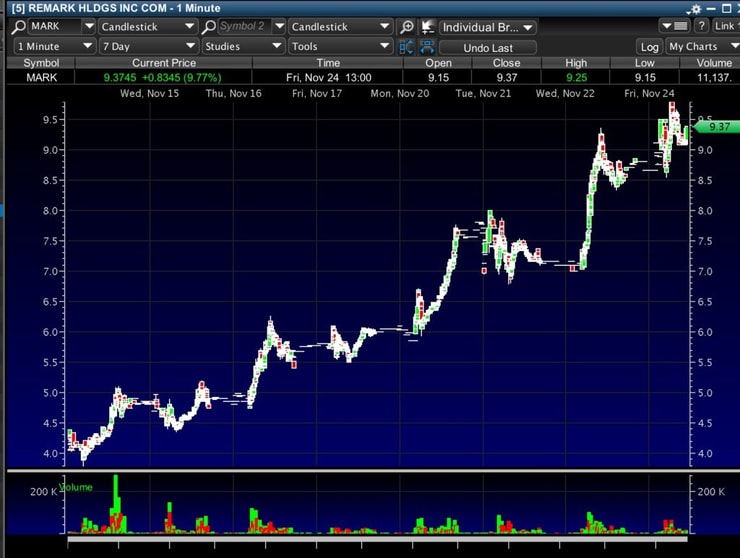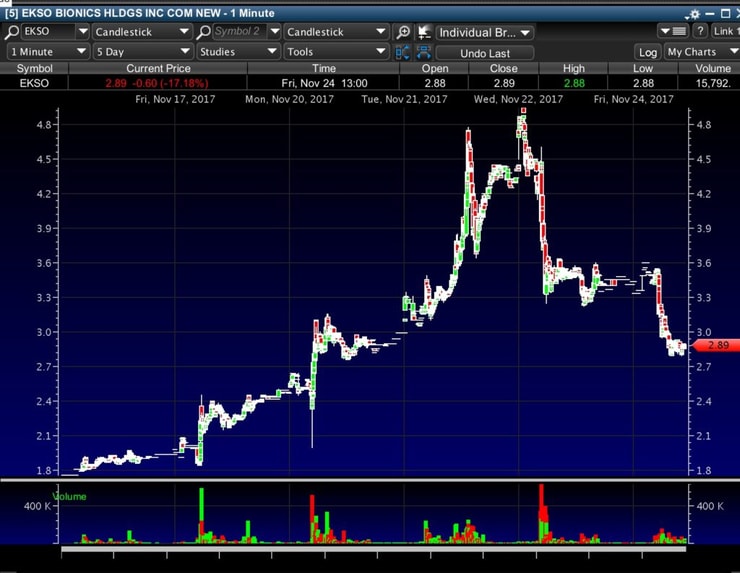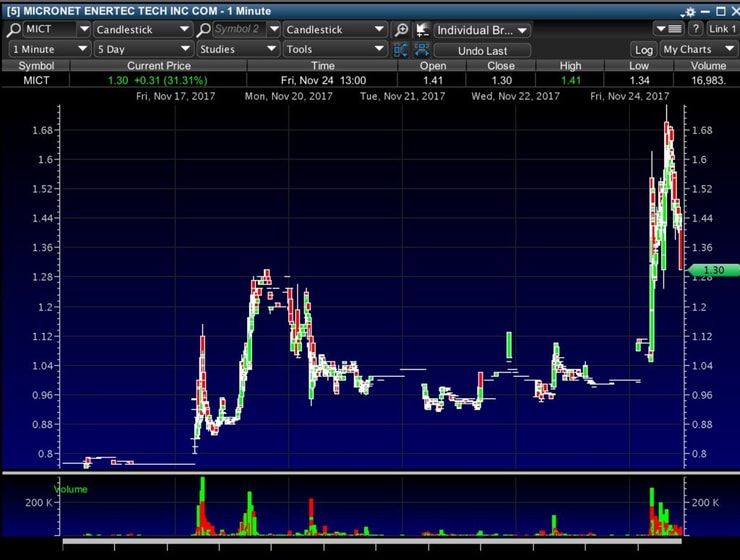This is a common question I get all the time among potential members of the Tim Sykes Millionaire Challenge: how can penny stocks make you successful?
Long story short, because they’re so volatile, if you learn how to ride the momentum up AND down, you can turn a few thousand dollars into six or seven figures within a few years as SEVERAL of my top students and I have proven over and over and over again.
Penny stocks offer a way to make a profit with minimal investment because they’re so cheaply priced. Now that gift is also their curse as this can make many people wary, in a “if it seems too good to be true, it probably is” sort of way. But here, I’ll break down how and why penny stocks are the real deal if you trade them with proper rules. In reading this, you’ll gain a better understanding of how trading penny stocks can be part of helping you become my next financial success story like this guy and this guy and this guy
1. There’s a system that can be mastered. Before we can adequately discuss the subject of how can penny stocks make you profitable we need to get straight on something. You’re not going to instantly become a millionaire on your first trade, or possibly even your first hundred trades or in month one, two, three or even 6…more like year 2, 3 and 4. It’s going to require a lot of learning about the specifics of trading penny stocks.
For members of the Tim Sykes Million Challenge Team, this is a snap, because my program is specifically designed to teach them what they need to know. Learning the basics is vital, of course, but I teach my students more. I teach them specific systems and techniques for trading which can allow them to become successful. By learning and committing the system to heart, you can begin to profit in a big way from trading penny stocks.
2. This niche is volatile. Yes, you read that right. The market for penny stocks is very volatile: prices can go up and down extremely rapidly. This means that penny stocking comes with a significant amount of risk. However, as you’ll learn in just about any business seminar, risk is often in direct proportion to the potential reward.
Because penny stocking is risky and the market is volatile, many actually steer clear of penny stocks. This is both a bad and a good thing at once. It’s bad because individuals who avoid penny stocks are losing out on the chance to make staggering sums of cash. But it’s a great thing because it means that if you decide to trade penny stocks, there is less competition. If you’re willing to learn the system and master ways to mitigate risk, there’s a wide open world of money to be made.
Look at these great 5-day charts of some recent hot penny stocks of the past week to see the kind of upside I’m talking about:



3. There are different regulations. One of the biggest complaints you’ll hear from penny stocking naysayers is that the regulations aren’t as stringent as on the larger national exchanges. Actually, this is very true. The companies themselves usually are not exceptional, and they don’t have to disclose as much as larger companies traded on, say, the New York Stock Exchange. However, this is only a bad thing if you’re not willing to do your research. Plenty of self-serving penny stock promoters will try to sell you nothing stocks; ignore them and do your own research like my top millionaire trading challenge students and I do.
While there’s a certain safety to trading stocks from more established companies on larger exchanges, there’s far less profit, percent-wise to be made that way. There is greater risk in trading penny stocks, but you can mitigate that risk by doing a little legwork of your own and following rules like these, especially rule #1 which is cut losses quickly. Research the companies and find out what they are all about and see what they’ve done in the past and how they’re doing now. Often, by doing a little bit of your own research, you can make up for what is unknown and risky.
4. Penny stocks reward self starters. In reading #2 and #3 above, you probably have a good idea of some of the things that scare people off of trading penny stocks. Let them be scared, because that means there is more profit to be made for those willing to take the time to research and become self-sufficient like all my top Millionaire Trading Challenge students are!
More Breaking News
- KeyBanc Boosts Intuitive Machines with Higher Price Target
- ABP’s Stock Movement Signals Market Concerns Amid Broader Trends
- Bitcoin Crash Sparks Sharp Decline in Cryptocurrency Stocks
- HUMA Stock Shows Volatility Amid Speculation and Economic Factors
Let me be clear, penny stocks are not for everyone as to be successful in this niche you MUST be able to dig in and do your own research. You also need to develop great risk tolerance and be willing to work hard. Surprisingly, few are willing to do this. However, if you are a self starter who is capable of thinking for him or herself and who is willing to seek out teachings and guidance and who can handle this level of responsibility and maintain self motivation, this is part of how can penny stocks make you successful.
5. Penny stocks are accessible to all traders. You don’t need to have a specific degree, experience or even much money to trade penny stocks. Now, because of this fact, many people jump in without the proper preparation…and lose a ton of money, then proceed to badmouth penny stocks for the rest of their lives.
So how can penny stocks make you successful with a different attitude?
Here’s how. If you do pursue learning about penny stocks in the right way by memorizing guides like this and through my Trading Challenge mentorship, then the accessibility of penny stocks means that you can basically start trading as soon as you are ready, even with a small account. For some students that is right away; for others, they prefer a period of watchful waiting. But when you are ready to get trading, you don’t necessarily have to jump through hoops to get started.
6. They offer a great chance for return. How can penny stocks make you successful ? One of the primary ways in which they can do so is with their incredible potential for return, since they start with such a small base price. Penny stocks have incredibly low prices; some are a few dollars, some are literally pennies per share. When buying in a large quantity, you have the potential to earn a ton of money if the stock rises, sometimes exponentially, and you lock in your profits before it it has a chance to fall…take for example, one of my hottest trading challenge students right now, Roland, who locked in $40,000+ in profits on EKSO last week:
…before EKSO later proceeded to fall as I posted in the chart above and now Roland has turned $4,000 into $400,000+ in 2017 alone, all by simply taking advantage of this niche’s volatility.
Hopefully you can see reading through this post, penny stocks are not for everyone as they do come with a significant level of risk, and the degree of discipline and work ethic required make it even tougher.
But thanks to The internet and crucial trading software like this, you have the ability to research and find opportunities on your own, they can provide an incredible chance to become extremely wealthy within a few years that no other market niche offers. It’s worked for me and several of my Millionaire Trading Challenge students; could you be the next success story?
Leave a comment below if you get what I’m saying and you promise to study your butt off and capitalize on this niche’s opportunity!



Leave a reply